
Microsoft now lets you install Ubuntu Linux in Windows 10 using the Hyper-V Manager
Microsoft has been gradually hugging Linux closer to its heart, making it ever easier to install Linux-based operating systems within Windows 10. Now Ubuntu fans have a new option when it comes to installing their favorite distro.
It is now possible to install either Ubuntu 18.04 LTS or 19.04 using Windows 10's Hyper-V Manager -- the admin tool designed to make it easy to manage virtual machines.
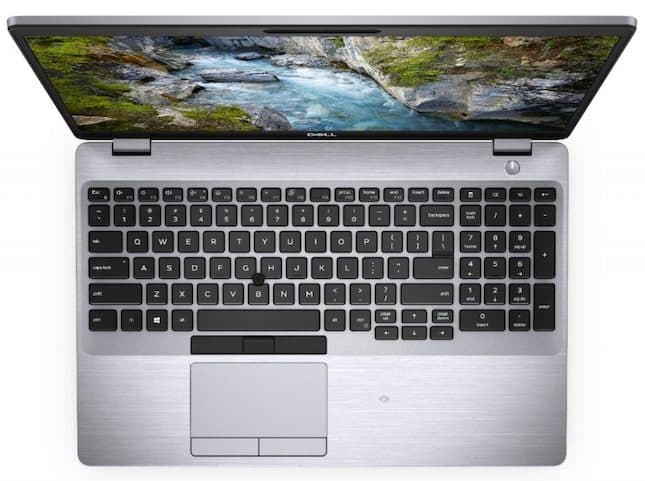
Dell Precision 3540 and 3541 'Developer Edition' mobile workstations come with Ubuntu Linux
Dell has been manufacturing excellent value-focused computers for years. Back in the day I was a computer salesman at a now-defunct brick and mortar CompUSA. People would often walk into the store, look at what we charge, ask if we could match Dell's price for a similarly configured machine, we would say no, and they would leave. It was virtually impossible to compete with Dell's high-volume online business model from a cost perspective.
Back in those days, Dell was in a monogamous relationship with Microsoft, but in modern times, the computer-maker is no longer exclusive with Windows. Actually, with its "Developer Edition" computers (also known as "Project Sputnik"), Dell also offers Ubuntu -- a Linux-based operating system. That may not seem like a big deal today, but years ago, when it first happened, it was huge news.

Ubuntu Linux 19.04 'Disco Dingo' is finally available for download
Christmas. Thanksgiving. Ubuntu release day. What do those three things have in common? They are days that cause many people to get excited. Back in the day, computer users would get excited about a new version of Windows too, such as Windows 95, XP, and 7 to name a few. Since Windows 8, however, Microsoft's new operating systems are hardly a reason for celebration. New versions of Ubuntu, the extremely popular Linux-based operating system, does pique the interest of many, including yours truly.
Today, Linux users around the world should celebrate, as Ubuntu 19.04 "Disco Dingo" is finally here! Following the Beta release, the stable version is now available for download. Keep in mind, version 19.04 is not LTS (Long Term Support), meaning it is only supported until January 2020.

Microsoft and Ubuntu-maker Canonical launch Visual Studio Code snap for Linux
One of the most frustrating things for Windows users that switch to Linux is learning to install software. With Microsoft's operating system, you search the web for the software you want, download it, and install it. With Linux-based operating systems, however, programs are typically installed through a centralized app center or through the terminal. The Linux approach is arguably safer, as Windows users can easily be tricked into downloading malware. Windows 10 tries to emulate the centralized software center with the Microsoft Store, but users have largely rejected it.
Thanks to Canonical's wildly popular snaps (and other containerized packages, such as Flatpak), Linux users can more easily install software -- it should be more familiar to former Windows users. Snaps will work on most distributions too, meaning there is less work involved for software developers -- there is no need to create distro-dependent versions. Today, Microsoft furthers its commitment to Linux by releasing a snap version of Visual Studio Code. No, the source-code editor is not the Windows-maker's first snap -- it also released one for Skype, for instance.

Ubuntu 19.04 Disco Dingo Beta now available with Linux kernel 5.0 and GNOME 3.32
Ubuntu is a great operating system. In fact, it has been so good for so long that many people take it for granted. Seriously, folks, think about how remarkable it is that such a high-quality Linux distribution is available for free. Despite it not costing anything, Ubuntu is arguably superior to the much-maligned Windows 10. Microsoft's operating system actually costs money now, and many users didn't even upgrade when it was offered for free.
Today, Canonical's operating system reaches a major milestone. You see, Ubuntu 19.04, which is named "Disco Dingo," has achieved Beta status. And yes, you can download it immediately -- a great way to get this weekend started! Fans of GNOME will be glad to know that version 3.32 is included in the standard Ubuntu Desktop release. Also cool? This is the first version of Ubuntu to use Linux kernel 5.
ExTiX 19.3 (190307) is based on Ubuntu 19.04 Disco Dingo, uses Linux kernel 5.0, and has Kodi Leia pre-installed
Here's the deal, folks -- there are far too many Linux distributions out there nowadays. It used to bother me, but over time, I made peace with it. Look, it's the nature of the beast -- we will never have a single Linux distro, as it is impossible to come to any consensus. For instance, I prefer Fedora and GNOME, but at the same time, other people like Ubuntu and KDE. If you were to poll the Linux community you would see a very segmented group of people. And so, there are an obscene number of operating systems based on the open source Linux kernel.
When I saw a distro claiming to be stable while using the brand new Linux 5.0 kernel and being based on the not-yet-finalized Ubuntu 19.04 Disco Dingo, I was intrigued. Surprisingly, despite it being around for years, it is an operating system I was not familiar with. Called "ExTiX," it seems to be developed by one man with a very no-frills website. In other words, I probably would not suggest using this thing as your main operating system for daily use. However, if you think it would be fun to play around with a Disco Dingo base and Linux kernel 5.0, it might be a fun weekend experiment. Not to mention, Kodi "Leia" comes pre-installed!
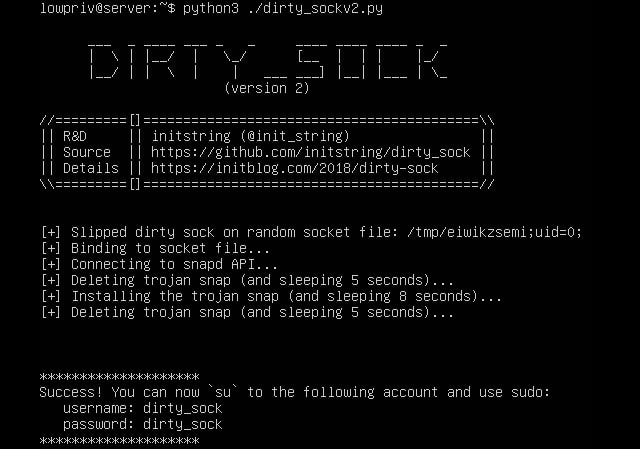
Dirty_Sock vulnerability in Canonical's snapd could give root access on Linux machines
A security researcher has discovered a vulnerability in Canonical's snapd package which could be exploited to gain administrator privileges and root access to affected Linux systems. The security issue has been dubbed Dirty_Sock and assigned the code CVE-2019-7304.
Chris Moberly found a privilege escalation vulnerability in the snapd API. This is installed by default in Ubuntu -- under which proofs of concept have been tested and found to work "100% of the time on fresh, default installations of Ubuntu Server and Desktop" -- but may also be present in numerous other Linux distros.

System76 'Darter Pro' laptop finally here -- support the Linux community and buy it!
At the end of last month, BetaNews shared with you that System76 was preparing to release a refreshed version of its Darter Pro laptop. This computer features a large 15.6-inch display and a rather thin and light body. There are many useful ports too, such as USB-C/Thunderbolt 3, USB-A, gigabit Ethernet, an SD Card slot, and both HDMI and DisplayPort for video. If you are a Linux user, the new Darter Pro really looks like a home run. System76 even managed to fit a number pad on the right side of the keyboard -- a much desired feature for many consumers.
We reported that the laptop would become available for purchase on February 5, and thankfully, that proved to be correct. Yes, dear Linux users, you can finally buy the new Darter Pro. Pricing is very competitive, starting at just $999! Best of all, by purchasing a System76 computer, you are supporting a longtime contributor to the Linux community.
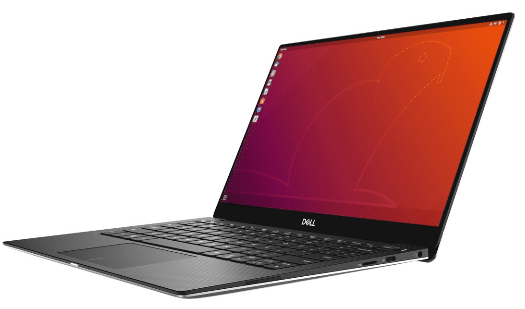
Dell XPS 13 (9380) Developer Edition now available with Ubuntu Linux
If you are a Linux desktop user, it is time to get very excited. Why? Because Dell has finally refreshed its XPS 13 Developer Edition laptop -- a very well-respected machine. Don't let the "Developer" in the name scare you -- it not only a great computer for devs, but home users, business users, and students too. This "Developer Edition" moniker simply indicates it is pre-loaded with Ubuntu Linux.
This newest version of the notebook, dubbed "9380," continues with Dell's focus on beauty and thinness, but it now has improved specs. Webcam users in particular will be delighted to know that the newest XPS 13 now has the camera on the top of the display rather than the bottom! Yes, there will be no more showing off the inside of your nostrils while video-conferencing.

Canonical shares the Top 10 Linux Snaps of 2018 -- Spotify, Slack, Plex, VLC, and more!
As 2018 comes to a close, I find myself doing much reflecting. Linux consumes much of my thinking, and sadly, this was not the year that it overtakes Windows on the desktop. You know what, though? Windows 10 was an absolute disaster this year, while the Linux-based Chrome OS has slowly become more and more mature. Other desktop Linux distributions, such as Ubuntu, Mint and Fedora, continue to get better, and Android remains the undisputed king of mobile. As we all know, Linux powers many servers around the globe too. So yeah, maybe it isn't the year of the Linux desktop, but the open source kernel still had a superb 2018 -- I raise my glass to it.
One of the most refreshing aspects of Linux in 2018 was the popularity of Snaps. Canonical revealed that the containerized packages have been a smashing success. Today, the Ubuntu-maker highlights what it feels are the top 10 Snaps of 2018. No, it is not based on popularity or voting, but seemingly, just Canonical's opinion.

Lubuntu kicks 32-bit Linux users to the curb
It is the year 2018, and 2019 is right around the corner -- 64-bit processors have been mainstream for a really long time. If you are still using a computer that is 32-bit only, it is time to toss it into a dumpster. No, I’m not being an elitist; it is simply time to move on. A much superior laptop can be had new for a few hundred bucks. Hell, you could probably buy a used 64-bit machine for under $100.
With all of that said, I am proud of all Linux-based operating system maintainers that have the courage to ditch 32-bit processor support. Some misguided Linux community members will decry this, claiming that the open source kernel can breathe new life into old hardware. That’s true, but it’s time for the world to raise the bar on what the bottom is -- all hardware can’t be supported forever. The latest major operating system to drop 32-bit support? Lubuntu.
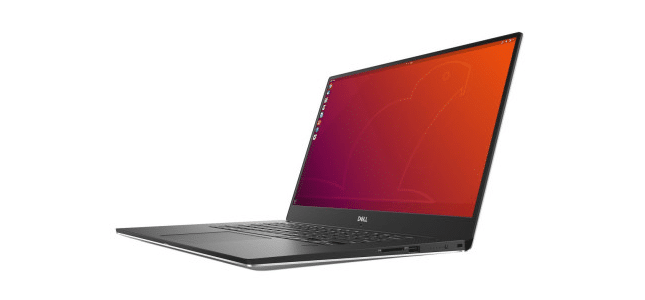
Ubuntu Linux 18.04 LTS comes to Dell Precision 5530 and 3530 mobile workstations
While many people and companies are jumping on the Linux bandwagon these days, it is important to remember that Dell has long been a proponent of the open source kernel. It has offered Ubuntu on some of its computers -- a gutsy move being such a major Microsoft partner. It may not seem major these days, but when one of the largest makers of Windows computers embraced Linux, it was monumental.
Dell remains a major Windows computer manufacturer, but its commitment to Ubuntu and open source ideology remains. The company has slowly been updating the pre-loaded version of Ubuntu from 16.04 to 18.04, with the XPS 13 (9370) getting the newest LTS variant in July. Now, two more Dell laptops are moving up to 18.04 -- Precision 5530 and 3530 mobile workstations

Linux: Ubuntu 18.04 LTS will be supported for a full decade
Mark Shuttleworth has announced that Ubuntu 18.04 will be supported for ten years. Long Term Support releases of Ubuntu usually enjoy just five years of support, so this doubling is highly significant.
Shuttleworth -- the founder of Canonical and Ubuntu -- made the announcement at the OpenStack Summit in Berlin, and the change is a tactical maneuver that will help Ubuntu better compete against the likes of Red Hat/IBM. It is also an acknowledgement that many industries are working on projects that will not see the light of day for many years, and they need the reassurance of ongoing support from their Linux distro. Ubuntu can now offer this.
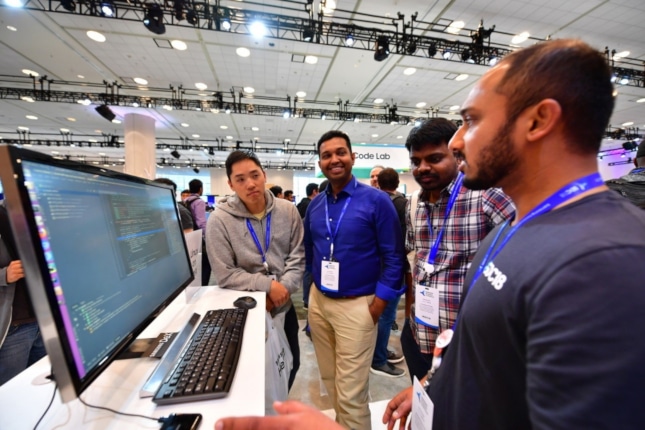
Linux on DeX Beta can turn your Samsung Galaxy smartphone or tablet into an Ubuntu desktop
As Microsoft continues to sully the reputation of Windows 10 with buggy releases and other failures, Linux continues to be a great alternative. Slowly but steadily, consumers are starting to realize Windows isn't necessary anymore. Hell, if Microsoft no longer cares about quality, and is satisfied to release deficient operating system updates, why does it deserve our money and attention?
Linux is great because operating systems based on it can adapt to various hardware configurations -- from meager low-powered computers to hardcore gaming PCs. Android phones are Linux-based, so it should not be surprising that Samsung is keen on transforming some of its Galaxy phones and tablets into makeshift Ubuntu desktops with the use of hardware docks and its DeX software. Called "Linux on Dex," it was announced last year (as "Linux on Galaxy"), but you can now finally sign up to beta test it.

System76 releases Ubuntu-based Pop!_OS 18.10 Linux distribution
System76 is making huge moves lately. The company used to just sell re-branded computers running Ubuntu, and while there was nothing wrong with that, it has much more lofty goals. You see, it released its own Ubuntu-based operating system called "Pop!_OS," and now, it is preparing to release its own self-designed and built open source computers. In other words, much like Apple, System76 is maintaining both the software and hardware aspects of the customer experience.
While its new hardware is not yet available, the latest version of its operating system is. Following the release of Ubuntu 18.10, Pop!_OS 18.10 is now available for download. While it is based on Ubuntu, it is not merely Canonical's operating system with System76 branding and artwork. Actually, there are some significant customizations that make Pop!_OS its own.
